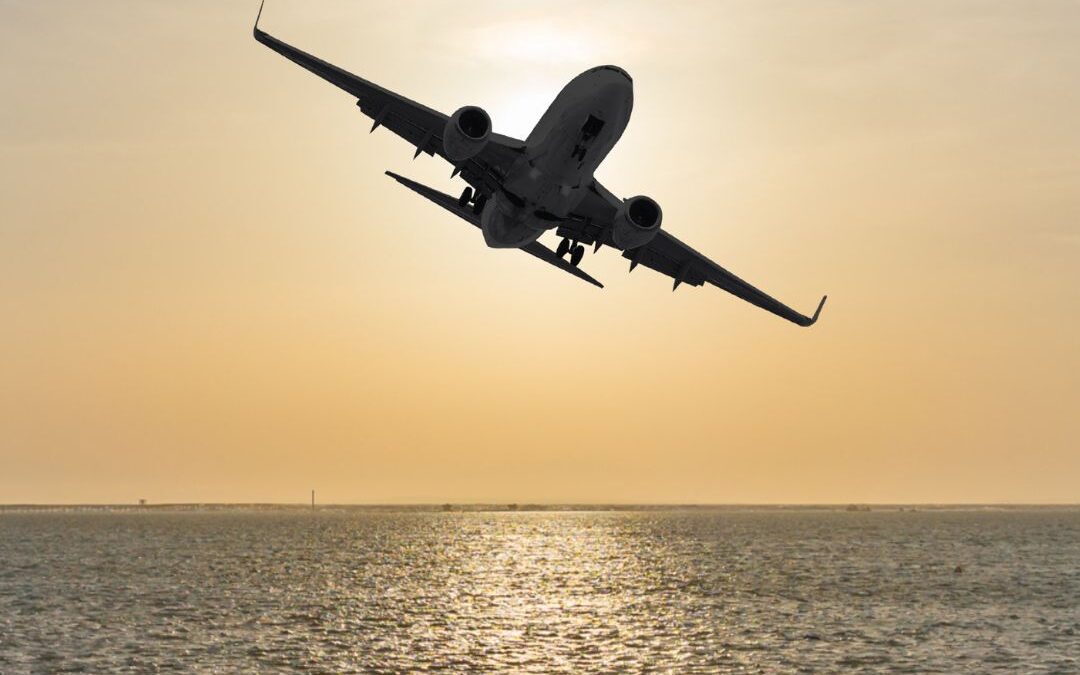As you’ll know if you follow me on Instagram, I’ve recently been doing a bit of long-haul travel, and unfortunately, long-haul travel tends to mean jet lag, more than just an inconvenience, symptoms of jetlag can leave you feeling unwell, and the associated fatigue can increase the risk of accidents.
symptoms of jet lag
Typical symptoms include trouble sleeping, whether that be difficulty falling asleep, waking really early or simply a fretful, interrupted sleep. Other symptoms include gastrointestinal upset, fatigue and generally feeling unwell, not what you want for your holiday.
So what exactly is jet lag?
Well, we each have our own circadian rhythm, and this rhythm is governed by a group of neurons in our hypothalamus known as the suprachiasmatic nucleus or SCN for short. These receive data from our eyes primarily in relation to the amount of light that’s around. We also have our own rhythm, which scientists believe is determined by the amount of proteins that have been created by our cryptochrome genes, and these proteins build up in our cells at night, and they reduce during the day, and they trigger feelings such as feeling sleepy or being alert.
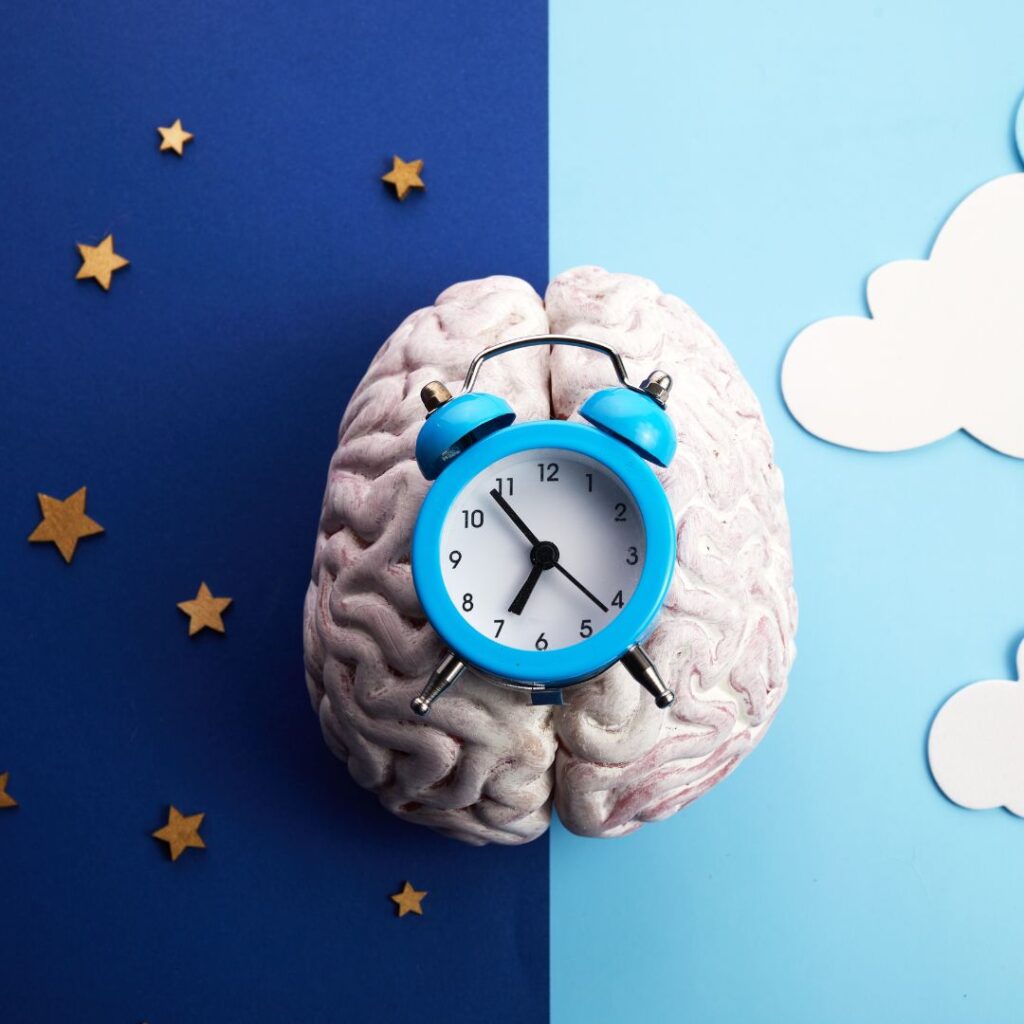
Our circadian rhythm is often referred to as our master clock. It determines when particular hormones are released, for example, and these hormones trigger hunger or stimulate or inhibit our digestive processes.
They’re also involved in sleep from light sleep all the way through to restorative deep sleep. So if we used a standardised time zone as a measure. We’ve got 24 time zones across the globe. Now, there are actually more than that when you factor in time zones that have differences of less than an hour or if you’re crossing the international date line.
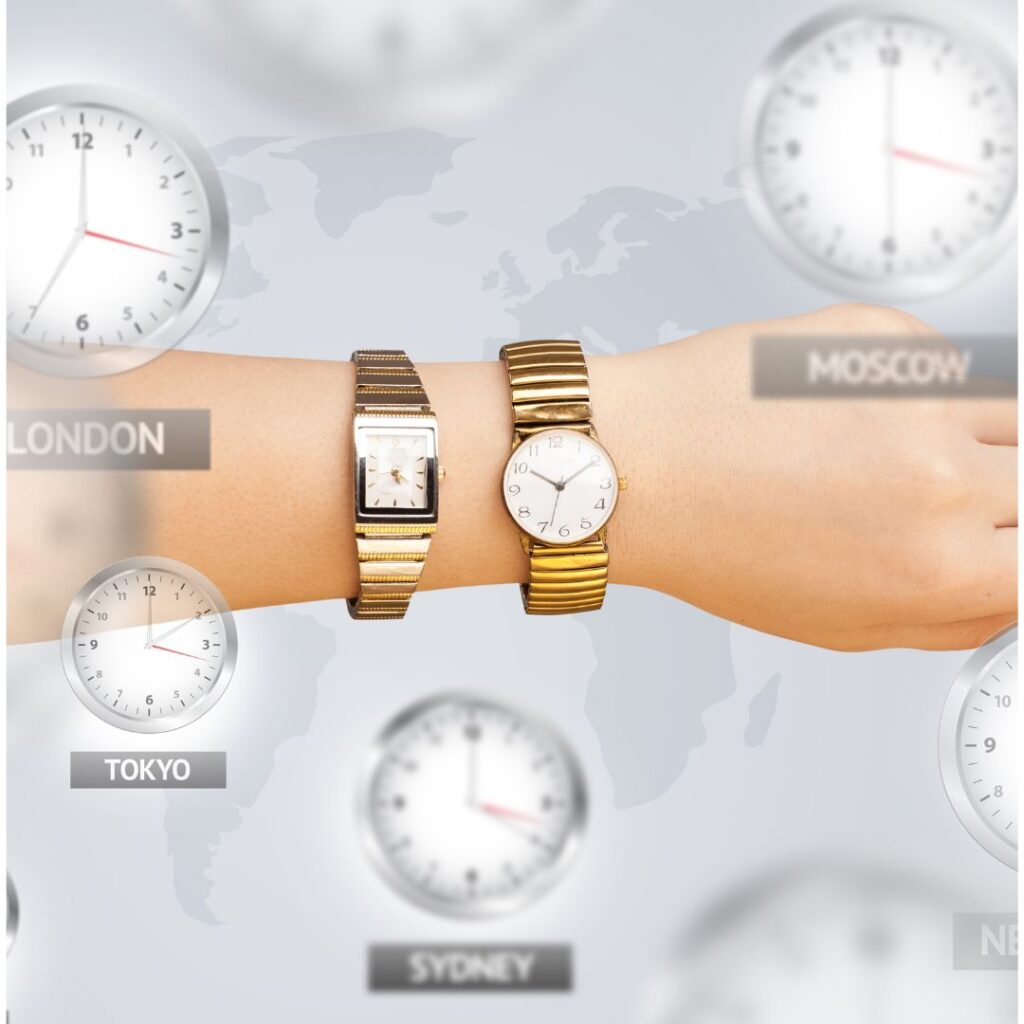
Jet lag happens when we cross several time zones quickly, as in when we’re flying rather than when we’re stately cruising. And it’s defined as a temporary sleep disorder due to your circadian rhythm being out of sync with your destination’s time zone.
Flying east tends to bring about more noticeable symptoms than flying west, so before I get to some herbal options, sunlight and the timing of your exposure to it plays a key role in resetting your circadian rhythm.
If you’re travelling west, get some sunlight in the early evening, ideally without using sunglasses. If you’re travelling east you’ll want some early morning sunlight. Now the exception to this rule is if you’ve crossed more than eight time zones because your hypothalamus may decide that that early morning light is actually dusk.
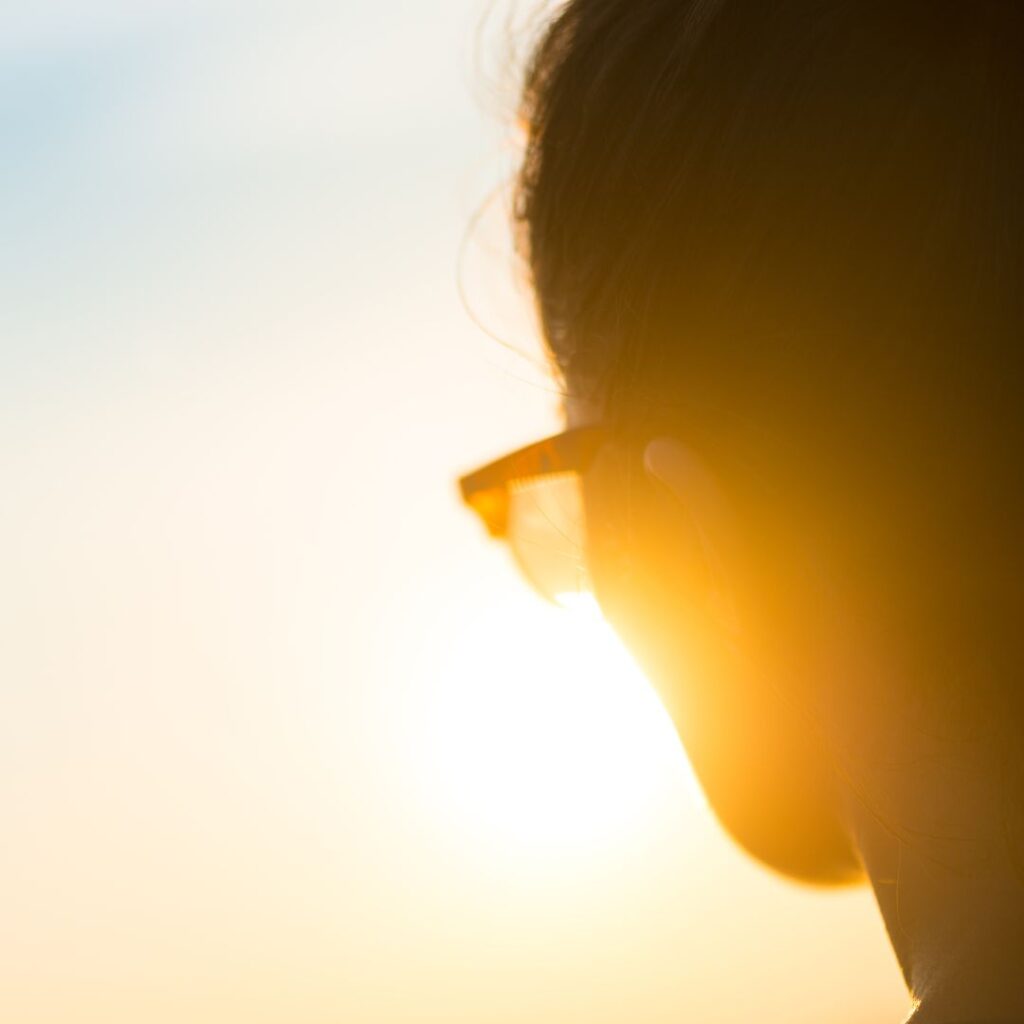
So I’m afraid it’s sunglasses for you and avoid early morning light. Instead, you want to expose your eyes to early afternoon light for the first couple of days and then move on to early morning light exposure.
Herbal helpers
In terms of herbal helpers for jet lag. Think about stimulating adaptogens in the morning and relaxing nervines in the evening, an adaptogen is a class of herbs which help your body respond and adapt to stressors, and travel is one example of something which creates stress within our body.
Adaptogens support your body by triggering a cascade of chemicals to help your body respond, repair and come back to a balanced state. Nervines soothe and calm the nervous system. Their action on the body ranges from acting as a sedative all the way along the spectrum to something that’s calming, and examples of relaxing nervines include lavender, hops, lemon balm, wild lettuce and chamomile.
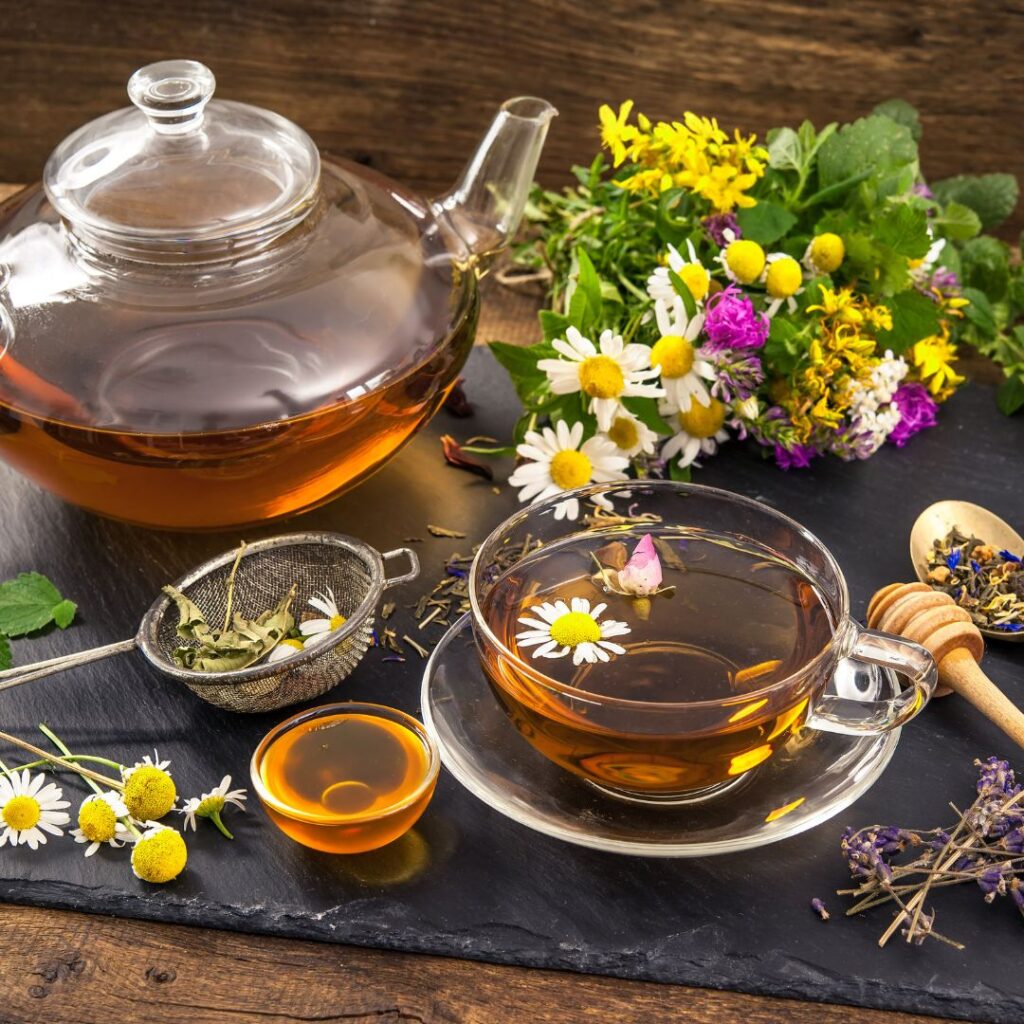
Now, wild lettuce infused in warm milk is a traditional sleep-inducing remedy. I’ve tried it myself, it’s effective, and it’s surprisingly tasty.
So, I would recommend trying out two or three relaxing nervines as a delicious nightcap before you travel, and that way you will find the one that works better for your unique constitution.
Once you’ve found the one, purchase some high-potency tablets so that you can pack them in your carry-on. They are a great sleep aid on the plane, and they avoid the sleeping pill hangover feeling that you sometimes get from using sleeping tablets. Some of my favourite stimulating adaptogens when it comes to jet lag include panax ginseng, Rhodiola, holy basil and the mushroom cordyceps and Schisandra berry, and there’s emerging research, which suggests cordyceps can help us to reset our circadian rhythm and that it can cross the blood-brain barrier, very helpful. It doesn’t give you that perked-up feeling like Rhodiola or Panax ginseng.

It’s more like a long burning, steady flame. I would suggest working with a herbalist to find the adaptogen combination that works best for you. Personally, I’m rather fond of Panax ginseng.
Now, it’s not one for hot constitutions or if you have high blood pressure.
It has an affinity for respiratory health, so that’s always good when you’re flying and it supports our hypothalamus, adrenal pituitary or HPA axis and this is the trifecta to focus on in times of high stress or when moving towards burnout. So if you’re planning on travelling somewhere far away to get some rest and relaxation as an antidote to a busy life, Panax ginseng may be your herbal ally.
As with most things herbal, adding herbs to a solid foundation tips the balance significantly in your favour.

In terms of managing jet lag, the solid foundation revolves around staying hydrated, optimising your sunlight exposure and getting enough good quality sleep before, during and after your holiday, conference or work trip.
Wishing you safe, joyful and healthy travels.

